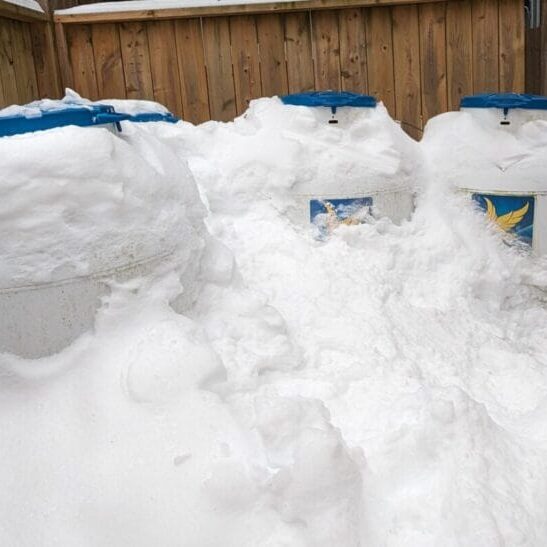
Fueling fairness
A call for equitable policies amidst Maritime Fuels’ financial failure
As the Canadian winter tightens its grip, Maritime Fuels’ recent bankruptcy declaration has sent a shiver of uncertainty through the citizens of Nova Scotia and New Brunswick.
In the face of a chilling predicament, the struggle to secure heating becomes more than a logistical challenge; it’s a poignant symbol of the vulnerabilities at the intersection of private enterprise and public welfare.
On Nov. 21, 2023, customers found coal in their digital stockings. The company sent an email stating that refunds would not be processed for those with credited balances. Maritime Fuels’ failure to properly handle pre-authorized payment plans left the company a staggering $2.5 million in debt and has Maritimers and local businesses grappling with reported losses ranging from $400-$2900.
More costs for consumers
Service Nova Scotia urged Maritime Fuels customers to cancel the pre-scheduled payments. However, navigating this process proved to be a challenge for customers as financial institutions only allow a stop-payment order for a single pre-authorized transaction and charge a fee for these stop payments. Moreover, they do not enable cancelling pre-authorized transactions altogether.
As a result, customers found themselves in a situation where they were required to contact Maritime Fuels directly, which proved to be a challenging quest. Not only are customers dealing with the fallout of the company’s failure, but they are also left to pay an extra fee to cancel payments, due to bank policies—a price they pay for being loyal patrons.
Global commodity markets and worldwide oil and gas pricing influence the cost of heating homes using oil in Canada. This expense has steadily risen, primarily as a result of geopolitical events.
According to the Canadian Government, “Home heating oil prices in Canada in 2022–2023 were approximately 30 percent higher than in 2020–2021. Nova Scotia saw a 70 percent increase in the cost of home heating oil last year, when compared with 2020.”
Houston government has no plan
Premier Tim Houston’s announcement that Nova Scotia has no plan to provide financial support to those affected is no solace.
As highlighted by NDP leader Claudia Chender, Houston’s comparison of the crisis to a failed gym membership overlooks energy’s critical role in citizens’ welfare and daily lives.
“A gym goes under, and is the government going to step up and refund people for those types of memberships?”
Houston’s endorsement of the $600 Heating Assistance Rebate Program (HARP) misses the mark in providing adequate support to Nova Scotians.
The targeted and income-tested nature of the HARP program, which requires a net income of $55,000 or less for individuals and a combined household income below $75,000, excludes many households from assistance.
The Liberal caucus provided a statement urging the provincial government to support customers affected by the bankruptcy of Maritime Fuels by guaranteeing their eligibility for the Heating Assistance Rebate Program (HARP).
Given the varying amounts of household credit with the private company, however, some would still be in deficit.
The minimum eight-week waiting period for the money to appear in successful applicants’ accounts introduces additional stress, particularly for families grappling with precarious financial situations.
The provincial government’s reluctance to set a precedent regarding bankruptcy sheds light on the legal complexities surrounding the financial struggles of individuals and entities, particularly private companies.
Bankruptcy is a legal process enabling relief from insurmountable debts and involves a structured procedure overseen by trustees. In the case of a private company, like Maritime Fuels, this entails the liquidation of assets and the subsequent distribution of proceeds to creditors based on a predetermined order of priority.
No protections for customers
When consumers with prepaid plans find themselves entangled in a company’s bankruptcy, they become unsecured creditors, facing a lower priority in receiving payments than secured creditors like banks or lenders. The government’s failure to protect its citizens exacerbates people’s hardships while allowing corporations to evade accountability and responsibility.
If the provincial government is unwilling to shoulder responsibility for the shortcomings in their secondary distribution tactics, companies could be made to contribute to a form of insurance when utilizing pre-authorized payments. Such a measure would shift the responsibility to the companies themselves, ensuring a safety net for consumers.
Our minimal state intervention approach places the burden on individuals and families and perpetuates social stratification in Nova Scotia. One must ask themselves whether the government is committed to safeguarding the welfare of its citizens or that of private interests.






